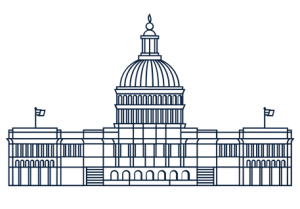 As Congress works to prepare a massive economic stimulus package in response to the coronavirus, NAGDCA joined 24 other organizations representing plan sponsors and service providers to retirement plans, in urging Congress to provide emergency relief to plan participants and retirees affected by the pandemic.
As Congress works to prepare a massive economic stimulus package in response to the coronavirus, NAGDCA joined 24 other organizations representing plan sponsors and service providers to retirement plans, in urging Congress to provide emergency relief to plan participants and retirees affected by the pandemic.
The Mar. 20 letter included proposals that would be helpful for government plan sponsors, participants, retirees, including asking Congress to:
Streamline loan procedures and liberalize hardship distribution rules.
Allow penalty-free qualified distributions and loan modifications for individuals impacted by COVID-19 similar to the relief provided in previous emergencies:
-
- Waive the Section 72(t) additional 10% tax on early withdrawals from retirement plans for individuals who have been impacted by the COVID-19 pandemic. Permit individuals three years to repay the distribution. Permit individuals to include the distribution in income ratably for more than three years.
- Double the current plan loan limits to the lesser of $100,000 or 100% of the participant’s vested account balance.
- Allow three years to repay income tax associated with a loan default.
- Allow individuals who borrow from their plan and have a repayment due during the months following the COVID-19 pandemic to delay loan repayment for up to one year.
Waive required minimum distribution rules.
Provide a temporary waiver of the rules for required minimum distribution from defined contribution plans and IRAs for calendar year 2020; similar to the waiver included in the Worker, Retiree, and Employer Recovery Act of 2008.
On March 19, Senate Republicans released the text of the “Coronavirus Aid, Relief, and Economic Security Act” or the “CARES Act.” Consistent with previous disaster-related relief, the bill contains a provision that would waive the 10-percent early withdrawal penalty for distributions up to $100,000 from qualified retirement accounts for coronavirus-related purposes. In addition, income attributable to such distributions would be subject to tax over three years, and the taxpayer may recontribute the funds to an eligible retirement plan within three years without regard to that year’s cap on contributions. Further, the provision would provide for flexibility for loans from certain retirement plans for coronavirus-related relief.
Senate Republicans and Democrats are negotiating over the weekend to come to a bipartisan agreement on legislation that they could bring to the floor the week of Mar. 23. The House is out of session and House leadership have said that they will return after the Senate has taken action.
